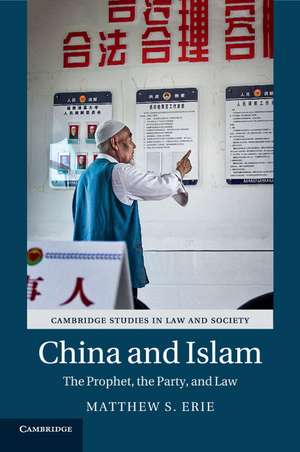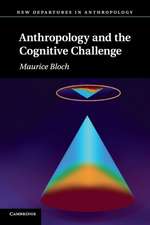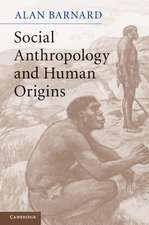China and Islam: The Prophet, the Party, and Law: Cambridge Studies in Law and Society
Autor Matthew S. Erieen Limba Engleză Paperback – 10 mai 2017
| Toate formatele și edițiile | Preț | Express |
|---|---|---|
| Paperback (1) | 357.89 lei 6-8 săpt. | |
| Cambridge University Press – 10 mai 2017 | 357.89 lei 6-8 săpt. | |
| Hardback (1) | 896.52 lei 6-8 săpt. | |
| Cambridge University Press – 31 aug 2016 | 896.52 lei 6-8 săpt. |
Din seria Cambridge Studies in Law and Society
-
 Preț: 208.02 lei
Preț: 208.02 lei -
 Preț: 217.08 lei
Preț: 217.08 lei -
 Preț: 169.28 lei
Preț: 169.28 lei - 9%
 Preț: 694.93 lei
Preț: 694.93 lei -
 Preț: 168.85 lei
Preț: 168.85 lei -
 Preț: 233.96 lei
Preț: 233.96 lei -
 Preț: 201.40 lei
Preț: 201.40 lei -
 Preț: 237.42 lei
Preț: 237.42 lei -
 Preț: 236.96 lei
Preț: 236.96 lei -
 Preț: 318.50 lei
Preț: 318.50 lei - 9%
 Preț: 661.48 lei
Preț: 661.48 lei - 11%
 Preț: 559.13 lei
Preț: 559.13 lei -
 Preț: 289.77 lei
Preț: 289.77 lei -
 Preț: 290.78 lei
Preț: 290.78 lei -
 Preț: 274.60 lei
Preț: 274.60 lei -
 Preț: 217.44 lei
Preț: 217.44 lei -
 Preț: 177.28 lei
Preț: 177.28 lei -
 Preț: 163.31 lei
Preț: 163.31 lei -
 Preț: 289.77 lei
Preț: 289.77 lei -
 Preț: 279.65 lei
Preț: 279.65 lei -
 Preț: 295.08 lei
Preț: 295.08 lei - 14%
 Preț: 723.92 lei
Preț: 723.92 lei -
 Preț: 392.55 lei
Preț: 392.55 lei -
 Preț: 375.68 lei
Preț: 375.68 lei -
 Preț: 379.07 lei
Preț: 379.07 lei - 11%
 Preț: 689.87 lei
Preț: 689.87 lei -
 Preț: 375.68 lei
Preț: 375.68 lei -
 Preț: 327.30 lei
Preț: 327.30 lei - 14%
 Preț: 725.57 lei
Preț: 725.57 lei - 14%
 Preț: 839.50 lei
Preț: 839.50 lei -
 Preț: 429.12 lei
Preț: 429.12 lei - 11%
 Preț: 694.91 lei
Preț: 694.91 lei - 14%
 Preț: 729.73 lei
Preț: 729.73 lei -
 Preț: 373.56 lei
Preț: 373.56 lei -
 Preț: 422.47 lei
Preț: 422.47 lei - 14%
 Preț: 727.72 lei
Preț: 727.72 lei -
 Preț: 308.12 lei
Preț: 308.12 lei -
 Preț: 398.54 lei
Preț: 398.54 lei -
 Preț: 323.95 lei
Preț: 323.95 lei - 14%
 Preț: 726.42 lei
Preț: 726.42 lei - 14%
 Preț: 781.19 lei
Preț: 781.19 lei - 11%
 Preț: 461.43 lei
Preț: 461.43 lei - 11%
 Preț: 530.10 lei
Preț: 530.10 lei
Preț: 357.89 lei
Nou
Puncte Express: 537
Preț estimativ în valută:
68.50€ • 74.44$ • 57.58£
68.50€ • 74.44$ • 57.58£
Carte tipărită la comandă
Livrare economică 21 aprilie-05 mai
Preluare comenzi: 021 569.72.76
Specificații
ISBN-13: 9781107670112
ISBN-10: 110767011X
Pagini: 471
Ilustrații: 23 b/w illus. 3 maps 2 tables
Dimensiuni: 152 x 230 x 25 mm
Greutate: 0.63 kg
Editura: Cambridge University Press
Colecția Cambridge University Press
Seria Cambridge Studies in Law and Society
Locul publicării:New York, United States
ISBN-10: 110767011X
Pagini: 471
Ilustrații: 23 b/w illus. 3 maps 2 tables
Dimensiuni: 152 x 230 x 25 mm
Greutate: 0.63 kg
Editura: Cambridge University Press
Colecția Cambridge University Press
Seria Cambridge Studies in Law and Society
Locul publicării:New York, United States
Cuprins
Introduction: the Party-State enters the mosque; 1. History, the Chinese state, and Islamic law; 2. Linxia at the crossroads; 3. Ritual lawfare; 4. Learning the law; 5. Wedding laws; 6. Moral economies; 7. Procedural justice; Conclusion: law, minjian, and the ends of anthropology.
Recenzii
'China, Islam, law: three major forces shaping our world encounter each other in the offices, mosques, and courtrooms of Linxia. We are fortunate to have Matthew S. Erie there to observe, record, and translate the negotiation and accommodations. If you are interested in one of the three forces mentioned above, you ought to read this book; if you are interested in any two, you must do so. A path-breaking achievement.' Tom Ginsburg, Leo Spitz Professor of International Law, University of Chicago Law School
'Hui Chinese have constructed forms of Islamic education and practice in a long-term historical space shaped by the Party-State and by shifting ideas of Islamic orthodoxy. Erie brings the Hui experience into dialogue with contemporary ethnographic work on Islamic ritual, knowledge, and governance. An ethnographic tour de force.' John Bowen, Dunbar-Van Cleve Professor in Arts and Sciences, Washington University, St Louis, and author of A New Anthropology of Islam
'Are Communism and Islam incompatible belief systems? In this fascinating account of Chinese Muslim law and its encounters with the state, the author demonstrates that the two manage to work together, predominantly through the middle ground of informal mediation and by ignoring sharp edges. Whether in marriage, Islamic banking, or property matters, we see in this unique and highly circumstantial analysis that the absence of state recognition belies an intriguingly complex, well-told story.' Lawrence Rosen, William Nelson Cromwell Professor of Anthropology, Princeton University, New Jersey
'By carefully investigating, explaining, and analyzing the life, politics, and law of China's Muslim minority, Matthew S. Erie moves beyond the stereotypes that often dominate accounts of Islam and China. This book enables us to see both in their complexity.' Frank K. Upham, Wilf Family Professor of Property Law and Co-Director, US-Asia Law Institute, New York University School of Law
'Matthew S. Erie's engaging ethnographic study brings together for the first time the rich, complicated and overlapping worlds of Chinese law and Islamic law in Northwest China. This fascinating book is a must-read for comparative legal scholars and legal anthropologists alike, illuminating paradoxes and struggles in the operation of religious law under reform-era Chinese socialism.' Teemu Ruskola, Emory University School of Law
'Erie examines the intersection of Islamic revival and an assertive China, seeking to unsettle unidimensional perceptions of extremist Islam and authoritarian China and to question the assumption that Islamic law is incompatible with state law. Based on fieldwork in Linxia, 'China's Little Mecca,' he follows Hui clerics, youthful translators on the 'New Silk Road,' female educators who reform traditional madrasas, and party cadres as they reconcile Islamic and socialist laws in the course of the everyday.' Law and Social Inquiry
'Islamic law, sharia, has not been central to studies of Islam in China - indeed, it often receives no mention at all, despite its import for scholars of other parts of the Muslim world and its undoubted importance to Muslims everywhere. Matthew S. Erie, an anthropologist-lawyer, has written a pioneering study based on extensive primary sources and 18 months of field-work in Linxia (临夏; formerly 河州 Hezhou), known as 'Little Mecca', an important Islamic center in Gansu Province. Given the sensitivity of Islamic subjects in China - related to perceived or claimed separatism, religious extremism, and terrorism in Xinjiang - Erie deserves praise for his decade of persistent navigation of the constraints and obstacles of the People's Republic of China (PRC). Beyond the already impressive task of doing this investigation, he has produced a volume of considerable subtlety and breadth, contributing both general claims and detailed ethnography, answering many questions, and successfully setting a baseline for further research.' Jonathan N. Lipman, Twentieth-Century China
'China and Islam brings to life many of the processes and practices that probably produced the histories of Chinese Islam's textual traditions. When we read the texts - the various Sanzijing editions, for instance - we can sometime only suspect what was going on behind the scenes of composing and publishing a new version.' Zvi Ben-Dor Benite, CrossCurrents
'Matthew S. Erie's ethnographic study examines the interaction of politics, society, culture and law, and will appeal to researchers, scholars, students and readers from the perspectives of social and political studies, law and society, education, sociocultural studies, Asian studies, comparative legal studies and Islamic studies. … One of the most significant contributions of Erie's research work concerns the belief systems shared by Hui Muslims and Han, such as trust, honesty and avoidance of confrontation as fundamental values for both cultural interaction and social integration. … This book is path-breaking in this regard and has opened up new horizons in various academic fields and interdisciplinary studies.' Sheri Zhang, Journal of Chinese Political Science
'A unique and impressive set of qualifications came together in Matthew Erie's China and Islam: The Prophet, the Party, and Law … Erie has written a book that will resonate in discussions across disciplines.' Jonathan Fulton, newbooks.asia
'Hui Chinese have constructed forms of Islamic education and practice in a long-term historical space shaped by the Party-State and by shifting ideas of Islamic orthodoxy. Erie brings the Hui experience into dialogue with contemporary ethnographic work on Islamic ritual, knowledge, and governance. An ethnographic tour de force.' John Bowen, Dunbar-Van Cleve Professor in Arts and Sciences, Washington University, St Louis, and author of A New Anthropology of Islam
'Are Communism and Islam incompatible belief systems? In this fascinating account of Chinese Muslim law and its encounters with the state, the author demonstrates that the two manage to work together, predominantly through the middle ground of informal mediation and by ignoring sharp edges. Whether in marriage, Islamic banking, or property matters, we see in this unique and highly circumstantial analysis that the absence of state recognition belies an intriguingly complex, well-told story.' Lawrence Rosen, William Nelson Cromwell Professor of Anthropology, Princeton University, New Jersey
'By carefully investigating, explaining, and analyzing the life, politics, and law of China's Muslim minority, Matthew S. Erie moves beyond the stereotypes that often dominate accounts of Islam and China. This book enables us to see both in their complexity.' Frank K. Upham, Wilf Family Professor of Property Law and Co-Director, US-Asia Law Institute, New York University School of Law
'Matthew S. Erie's engaging ethnographic study brings together for the first time the rich, complicated and overlapping worlds of Chinese law and Islamic law in Northwest China. This fascinating book is a must-read for comparative legal scholars and legal anthropologists alike, illuminating paradoxes and struggles in the operation of religious law under reform-era Chinese socialism.' Teemu Ruskola, Emory University School of Law
'Erie examines the intersection of Islamic revival and an assertive China, seeking to unsettle unidimensional perceptions of extremist Islam and authoritarian China and to question the assumption that Islamic law is incompatible with state law. Based on fieldwork in Linxia, 'China's Little Mecca,' he follows Hui clerics, youthful translators on the 'New Silk Road,' female educators who reform traditional madrasas, and party cadres as they reconcile Islamic and socialist laws in the course of the everyday.' Law and Social Inquiry
'Islamic law, sharia, has not been central to studies of Islam in China - indeed, it often receives no mention at all, despite its import for scholars of other parts of the Muslim world and its undoubted importance to Muslims everywhere. Matthew S. Erie, an anthropologist-lawyer, has written a pioneering study based on extensive primary sources and 18 months of field-work in Linxia (临夏; formerly 河州 Hezhou), known as 'Little Mecca', an important Islamic center in Gansu Province. Given the sensitivity of Islamic subjects in China - related to perceived or claimed separatism, religious extremism, and terrorism in Xinjiang - Erie deserves praise for his decade of persistent navigation of the constraints and obstacles of the People's Republic of China (PRC). Beyond the already impressive task of doing this investigation, he has produced a volume of considerable subtlety and breadth, contributing both general claims and detailed ethnography, answering many questions, and successfully setting a baseline for further research.' Jonathan N. Lipman, Twentieth-Century China
'China and Islam brings to life many of the processes and practices that probably produced the histories of Chinese Islam's textual traditions. When we read the texts - the various Sanzijing editions, for instance - we can sometime only suspect what was going on behind the scenes of composing and publishing a new version.' Zvi Ben-Dor Benite, CrossCurrents
'Matthew S. Erie's ethnographic study examines the interaction of politics, society, culture and law, and will appeal to researchers, scholars, students and readers from the perspectives of social and political studies, law and society, education, sociocultural studies, Asian studies, comparative legal studies and Islamic studies. … One of the most significant contributions of Erie's research work concerns the belief systems shared by Hui Muslims and Han, such as trust, honesty and avoidance of confrontation as fundamental values for both cultural interaction and social integration. … This book is path-breaking in this regard and has opened up new horizons in various academic fields and interdisciplinary studies.' Sheri Zhang, Journal of Chinese Political Science
'A unique and impressive set of qualifications came together in Matthew Erie's China and Islam: The Prophet, the Party, and Law … Erie has written a book that will resonate in discussions across disciplines.' Jonathan Fulton, newbooks.asia
Notă biografică
Descriere
This book is the first ethnographic study of Muslim minorities' practice of Islamic law in contemporary China.












